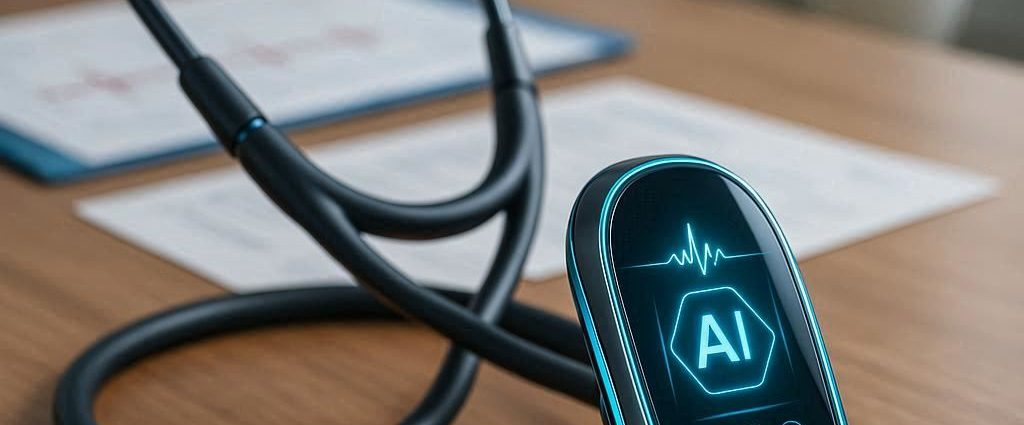A breakthrough in medical technology is bringing artificial intelligence into everyday healthcare. Researchers at Imperial College London and Imperial College Healthcare NHS Trust have developed an AI-powered stethoscope that can detect heart failure, atrial fibrillation, and valve disease in as little as 15 seconds.
The device, about the size of a playing card, replaces the traditional chest piece on a stethoscope. By combining ECG recordings with heart sound analysis, it sends data to the cloud where artificial intelligence rapidly analyses the results. A clear at-risk report is then delivered straight to a clinician’s phone, helping GPs identify patients who need urgent care. According to The Independent, this innovation could transform the way cardiovascular conditions are picked up in primary care.
Early diagnosis more than doubled in GP trials
The AI stethoscope has already been tested in the TRICORDER study, which involved 200 GP surgeries. Findings presented at the European Society of Cardiology Congress in Madrid showed that patients examined with the device were over twice as likely to receive an early diagnosis compared with standard care. Specifically, they were 2.33 times more likely to be diagnosed with heart failure, 3.45 times more likely with atrial fibrillation and nearly twice as likely with valve disease. The British Heart Foundation, which co-funded the research, says this could save thousands of lives through earlier intervention.
How the AI stethoscope works
Instead of the familiar round chest piece, doctors place the playing-card-sized sensor on the chest. Built-in electrodes capture a single-lead ECG, while a sensitive microphone records the sounds of blood flow. These two streams of information are then analysed together by AI models trained on thousands of patient datasets. Within seconds, the clinician receives a result that flags whether a patient is at risk of heart failure, rhythm abnormalities such as atrial fibrillation, or valve disease. Evening Standard reports that results are displayed directly on a linked smartphone, making it quick and easy for GPs to use during standard consultations.
A potential game-changer for primary care
Heart failure is often only diagnosed during emergency hospital admissions, which means treatment begins late and outcomes are poorer. By embedding this AI diagnostic tool into GP surgeries, patients can be identified earlier and started on therapies that prevent progression. The National Institute for Health and Care Research describes it as a way of “bringing hospital-grade diagnostics into everyday appointments.”
The research team is now expanding rollouts across London, Wales and Sussex. A full study protocol has been published to support further clinical trials and replication. While the AI stethoscope is not designed to replace clinicians, it provides an extra layer of intelligence that can boost confidence in early detection and decision-making.
This innovation reflects the growing trend of AI in healthcare, where machine learning tools support doctors with faster, more accurate diagnostics. If adopted widely, the AI stethoscope could become as common as the traditional stethoscope in GP surgeries worldwide.

